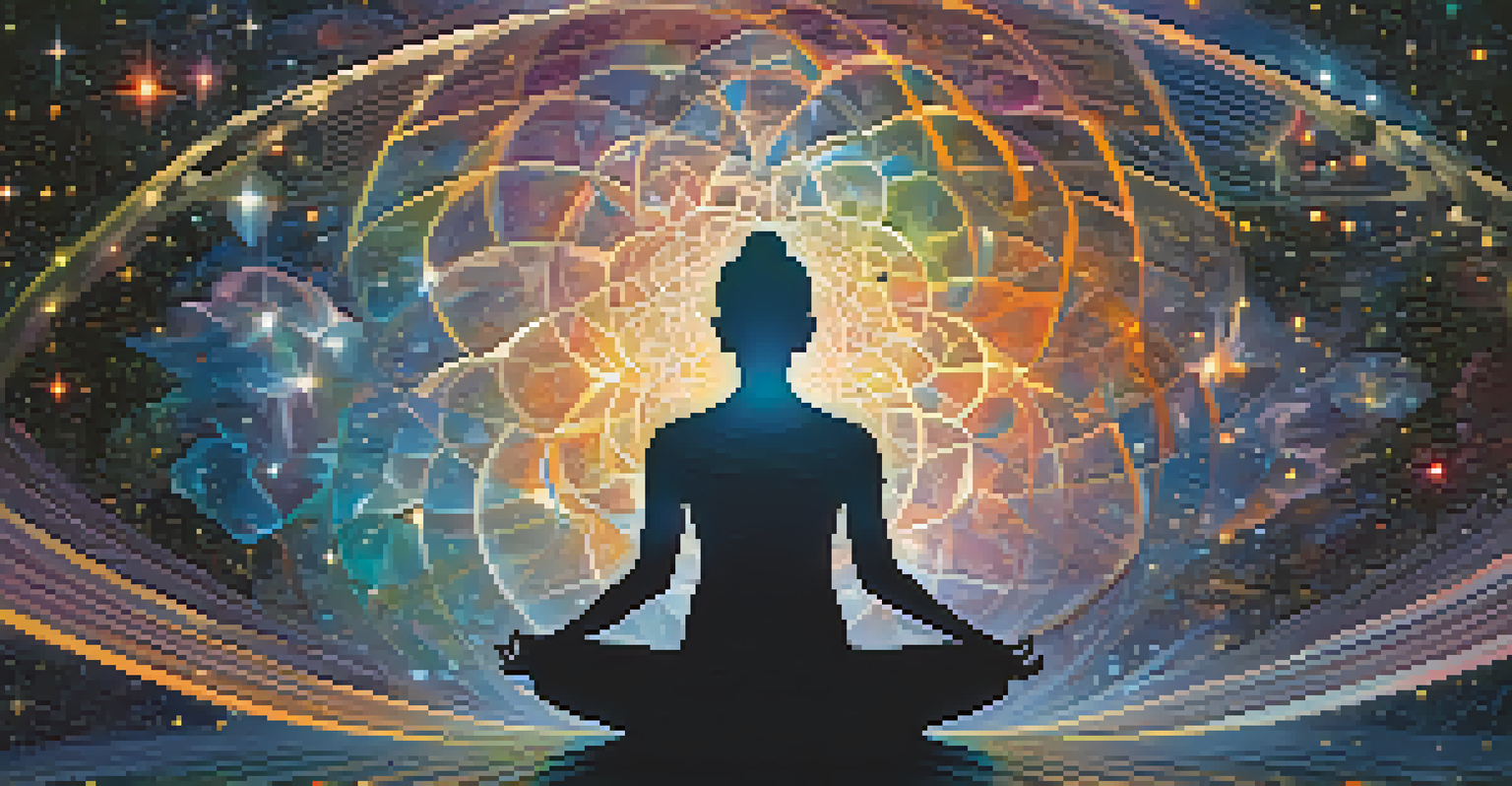Hallucinogens and Their Role in Shaping Life's Meaning

Understanding Hallucinogens: A Brief Overview
Hallucinogens are substances that alter perception, mood, and cognitive processes. Common examples include LSD, psilocybin (magic mushrooms), and DMT. These substances can create profound experiences, often leading individuals to explore deeper aspects of their consciousness.
The psychedelics can help to illuminate the mind, revealing insights and truths that have long lain hidden beneath the surface.
Historically, many cultures have used hallucinogens in spiritual and religious ceremonies, suggesting a long-standing connection between these substances and the search for meaning. For instance, indigenous tribes in the Amazon have utilized ayahuasca for centuries to facilitate healing and insight.
In recent years, the scientific community has begun to investigate the therapeutic potential of hallucinogens, particularly in treating conditions like depression and PTSD. This renewed interest highlights their potential to reshape not just individual lives, but also societal perceptions of mental health.
The Psychological Effects of Hallucinogens
The psychological effects of hallucinogens can be both profound and transformative. Users often report experiences of deep introspection, altered self-awareness, and a sense of connectedness to the universe. These experiences can lead to significant shifts in one’s worldview.

For many, hallucinogens can catalyze personal growth, prompting individuals to confront unresolved issues or rethink their priorities. Anecdotal evidence suggests that these substances can inspire creativity, enhance empathy, and foster a greater appreciation for life’s complexities.
Hallucinogens and Self-Discovery
Many users report that hallucinogens can lead to profound self-discovery and a renewed sense of purpose.
However, it’s essential to approach these substances with caution, as they can also provoke anxiety or confusion. Understanding the psychological landscape that accompanies hallucinogen use is crucial for maximizing their benefits while minimizing potential risks.
Spiritual Journeys: Hallucinogens and Self-Discovery
Many users describe their hallucinogenic experiences as spiritual journeys that lead to profound self-discovery. These journeys often involve feelings of transcendence and connection to something greater than oneself, whether that be nature, the universe, or a higher power.
Hallucinogens can serve as catalysts for change, prompting individuals to reevaluate their beliefs, relationships, and life choices.
During these experiences, individuals may confront existential questions, leading to insights about their purpose and place in the world. Such revelations can reshape their understanding of life, often resulting in a more meaningful existence.
For example, someone might use a hallucinogen during a retreat and emerge with a renewed sense of purpose, clarity on their relationships, or a commitment to serve others. This transformative potential is a key reason many seek out these substances for personal exploration.
Cultural Perspectives on Hallucinogens
Across different cultures, hallucinogens have been revered as sacred tools for connecting with the divine. In many Indigenous cultures, these substances are integral to rituals, often regarded as pathways to wisdom and healing.
For instance, the use of peyote in Native American ceremonies illustrates a deep-rooted belief in its ability to bring participants closer to spiritual truths. This cultural context provides a framework for understanding the significance of hallucinogens beyond mere recreational use.
Cultural Significance of Hallucinogens
Hallucinogens have been revered in various cultures as sacred tools for spiritual connection and healing.
As societies evolve, the perception of hallucinogens is shifting. With a growing interest in their therapeutic applications, there’s a renewed dialogue about their role in both historical and contemporary contexts, challenging long-standing stigmas.
Therapeutic Uses: A New Frontier
Recent studies have explored the therapeutic potential of hallucinogens, showing promising results in treating mental health conditions. Substances like psilocybin and MDMA have been used in clinical settings to help patients process trauma, anxiety, and depression.
These treatments often incorporate guided sessions, where trained professionals assist individuals in navigating their experiences. This supportive environment can amplify the positive effects of hallucinogens, making them powerful tools for healing.
As research progresses, we may see a paradigm shift in how society views mental health treatments, with hallucinogens playing a crucial role in holistic approaches to well-being and self-discovery.
Navigating Risks and Benefits of Hallucinogens
While hallucinogens have significant potential benefits, they also come with risks that must be considered. Not all experiences are positive; some users may encounter challenging emotions or frightening hallucinations, which can be overwhelming.
To mitigate these risks, it’s essential to approach hallucinogen use with preparation and intention. This includes setting a positive mindset, choosing a safe environment, and ideally, having a trusted guide present during the experience.
Therapeutic Potential of Hallucinogens
Recent studies show promising therapeutic applications for hallucinogens in treating mental health conditions.
By understanding both the potential rewards and pitfalls, individuals can navigate their hallucinogenic journeys more safely and effectively, ensuring that their experiences contribute positively to their understanding of life.
Hallucinogens and the Search for Meaning
Ultimately, the relationship between hallucinogens and the search for meaning is deeply personal and varied. For some, these substances can unlock profound insights and a greater understanding of themselves and their place in the world.
As users share their stories, it becomes clear that hallucinogens can serve as catalysts for change, prompting individuals to reevaluate their beliefs, relationships, and life choices. The journey is unique for everyone, shaped by personal history and intentions.

As society continues to explore this terrain, it’s crucial to foster open conversations about the role of hallucinogens in shaping our understanding of life, spirituality, and mental health.